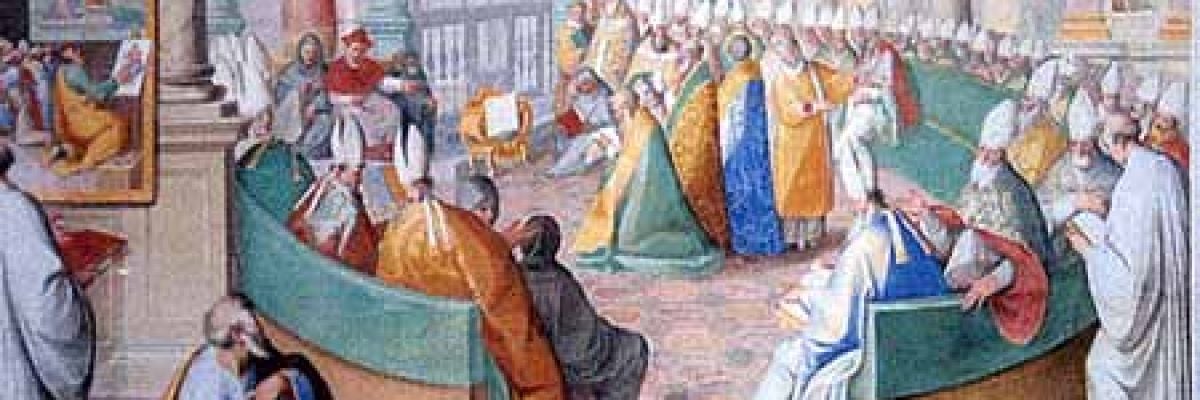
Some year ago, I encountered a reference to the First Council of Nicaea (A.D. 325) having addressed the canon of Scripture.
For a long time, I was unable to find any confirmation of this.
The surviving materials we have from Nicaea, which include the first part of the Nicene Creed, do not deal with which books belong in the Bible.
I ended up concluding that the idea the council addressed this subject was likely a myth, but recently I ran across an indication that it may have done this–and that it may have included deuterocanonical works in the canon.
As he translated the Vulgate, St. Jerome provided brief prologues for a number of books.
His prologue to the deuterocanonical book of Judith reads as follows:
Among the Hebrews the Book of Judith is found among the Hagiographa, the authority of which toward confirming those which have come into contention is judged less appropriate.
Yet having been written in Chaldean [Aramaic] words, it is counted among the histories.
But because this book is found by the Nicene Council to have been counted among the number of the Sacred Scriptures, I have acquiesced to your request, indeed a demand, and works having been set aside from which I was forcibly curtailed, I have given to this (book) one short night’s work translating more sense from sense than word from word.
I have removed the extremely faulty variety of the many books; only those which I was able to find in the Chaldean words with understanding intact did I express in Latin ones.
Receive the widow Judith, an example of chastity, and declare triumphal honor with perpetual praises for her.
For this one has the Rewarder of her chastity given as imitable not only for women but also for men, Who granted her such strength, that she conquered the one unconquered by all men, she surpassed the insurpassable [source].
This reference does not prove that the First Nicaea dealt with the canon, but it does show that the claim that it did was around in St. Jerome’s day and that he, himself, believed it.
Since Jerome translated Judith sometime between 405 and 407, we’re dealing with a period about 80 years after the council, when memories of it were fresher and when additional documents produced by the council may have still existed.
What’s more, Jerome indicates that the council reckoned Judith as Scripture and, if it did that, then it likely recognized other deuterocanonical books as Scripture also–just like other 4th century councils did (e.g., Rome in 382 and Hippo and Carthage in 393 and 397).
If you’d like to learn more about the early Church’s views on which books belong in Scripture, see my book, The Fathers Know Best.



